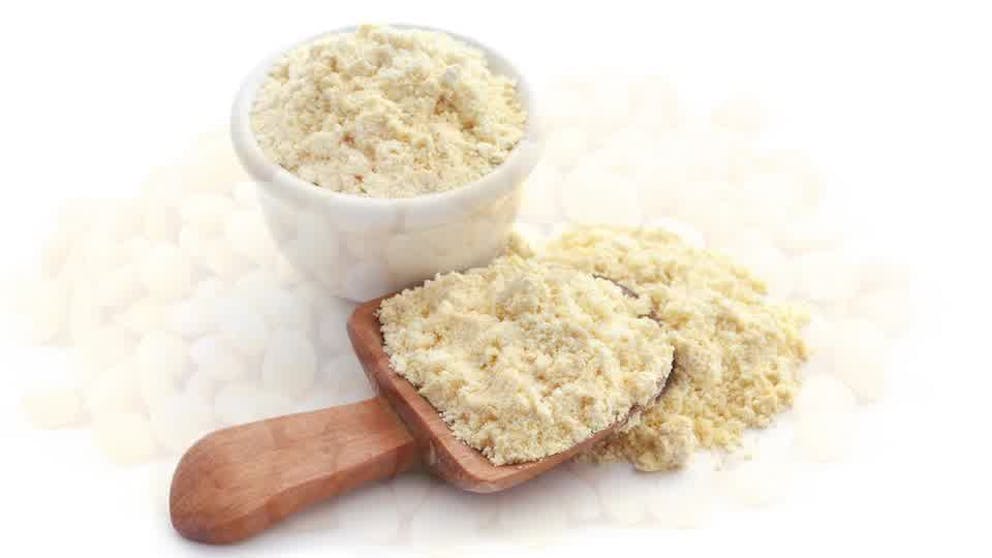Can You Get Fat on Too Much Protein
Protein, protein, protein. It's all the rage these days. But hold up - can too much of a good thing actually make you gain weight? I used to think protein was the ultimate magic bullet for weight loss. Boy, was I wrong!
Turns out, the relationship between protein and body weight is more complicated than a Facebook status. It's like a game of tug-of-war between insulin and glucagon. And if you're not careful, you might end up on the losing side.
So, let's unpack this protein puzzle together. I promise, no boring science lectures. Just straight talk and a few laughs along the way. Ready to find out if your protein shake habit is secretly sabotaging your weight loss goals?
The Complex Relationship Between Protein Intake and Weight Gain
Protein is an essential macronutrient that is crucial in building and repairing tissues, maintaining muscle mass, and supporting various bodily functions. However, the relationship between protein intake and body weight is not as straightforward as it may seem.
While protein is often associated with weight loss and muscle building, consuming too much protein can lead to weight gain.
Excess protein that the body doesn't need for its immediate functions is either excreted through the kidneys or converted into glucose and potentially stored as fat.
Insulin and Glucagon: A Balancing Act
Protein intake influences the release of two essential hormones: insulin and glucagon. Insulin is released when blood sugar levels rise, which can happen after consuming protein, especially in large amounts.
Insulin helps shuttle glucose into cells for energy or storage, but it also promotes fat storage when there's an excess of calories.
On the other hand, protein consumption also stimulates the release of glucagon, a hormone that counteracts the effects of insulin. Glucagon helps break down stored fat for energy, aiding in weight loss.
The balance between these two hormones is crucial for maintaining a healthy body weight.
The Metabolic Pathways of Excess Protein
When you consume more protein than your body needs, it has to find ways to deal with the excess. One pathway is through the kidneys, where the body filters out the extra nitrogen from the amino acids in protein and excretes it through urine.
This process can put a strain on the kidneys over time, especially if you have pre-existing kidney issues.
Another pathway for excess protein is conversion to glucose through a process called gluconeogenesis. This glucose can then be used for energy or stored as glycogen in the liver and muscles.
However, if there's still an excess of glucose, it can be converted into fat and stored in adipose tissue, leading to weight gain. It's important to note that consuming excess protein can lead to waste through the kidneys or conversion to glucose.
Excessive protein intake can also trigger insulin release, potentially leading to weight gain if there's an overall calorie surplus.
However, protein consumption also stimulates the release of glucagon, a hormone that burns fat, which can help with weight management when combined with a proper diet and regular exercise.
The Side Effects of High Protein Diets
High-protein diets have gained popularity in recent years, especially among those looking to lose weight or build muscle.
However, consuming excessive amounts of protein can lead to some less-discussed side effects that may impact your overall health and well-being.
Digestive Discomfort and Protein Intake
One of the most common side effects of high protein intake is digestive discomfort. When you consume large amounts of protein, your digestive system has to work harder to break it down and absorb the nutrients.
This can lead to bloating, gas, and constipation, especially if you're not consuming enough fiber or water to help move things along.
Additionally, some people may have difficulty digesting certain types of protein, such as lactose in dairy products or gluten in wheat-based proteins. Consuming these proteins in large quantities can exacerbate digestive issues and lead to more severe discomfort.

Fatigue and Sleep Disturbances
Another potential side effect of high protein diets is fatigue and sleep disturbances. While protein is essential for many bodily functions, consuming too much can actually have a stimulating effect on the body, making it harder to relax and fall asleep at night.
This may be due to the insulin spikes that can occur after consuming large amounts of protein, which can disrupt blood sugar levels and lead to energy crashes later on.
Additionally, if you're not digesting the protein properly, your body may not be getting the full range of amino acids it needs to function optimally, leading to feelings of fatigue and weakness.
It's worth noting that too much protein can cause fatigue, possibly due to insulin spikes or inadequate digestion. Overconsumption of protein can also lead to bloating and constipation, likely due to digestive issues.
Furthermore, protein can act as a stimulant and interfere with restful sleep, so it's important to find the right balance for your individual needs.
Special Considerations for High-Protein Diets
While high-protein diets can be beneficial for some people, there are certain scenarios where adjusting protein intake may be necessary for optimal health and achieving specific dietary goals. Let's explore a couple of these special considerations.
Protein Intake for Individuals with Fast Metabolism
People with faster metabolisms may benefit from slightly higher protein intakes compared to those with slower metabolisms.
This is because their bodies tend to burn through calories and nutrients more quickly, requiring a steadier supply of protein to maintain muscle mass and support overall health.
However, it's essential to keep in mind that even for those with fast metabolisms, consuming excessive amounts of protein can still lead to the side effects mentioned earlier, such as digestive discomfort and potential weight gain.
It's crucial to find the right balance and consult with a healthcare professional or registered dietitian to determine your individual protein needs.
Adjusting Protein for Keto Dieters
For those following a ketogenic diet, which is a high-fat, moderate-protein, and low-carbohydrate eating plan, adjusting protein intake may be necessary to achieve and maintain ketosis.
While the standard keto diet typically involves consuming moderate amounts of protein, some individuals may benefit from slightly increasing their protein intake.
This is particularly true for those with faster metabolisms, younger individuals, or those practicing intermittent fasting in combination with a keto diet.
The increased protein intake can help preserve muscle mass, support metabolic function, and promote satiety during fasting periods.
It's important to note that while there is no evidence to suggest that excess protein damages healthy kidneys, it may be problematic for individuals with pre-existing kidney or liver damage.
As always, it's best to consult with a healthcare professional before making significant changes to your diet, especially if you have any underlying health conditions.

Protein Puzzles
Navigates the intricate relationship between protein consumption and weight management, dispelling common misconceptions along the way.
Contrary to popular belief, excess protein doesn't necessarily lead to weight gain; rather, the overall balance of macronutrients and calorie intake dictates weight fluctuations.
Moreover, this guide sheds light on the lesser-known ingredient, lupin flour, and its potential in promoting satiety and supporting weight loss efforts.
Derived from the lupin bean, lupin flour is rich in protein and fiber, offering a nutritious alternative to traditional flours.
By incorporating lupin flour into their diet, individuals can harness its benefits for improved satiety, balanced blood sugar levels, and enhanced overall health.
Conclusion
Well, there you have it. The truth about protein and weight gain. It's not as simple as "more protein equals more muscle." Nope, your body's got a whole metabolic balancing act going on behind the scenes.
Too much protein can lead to some pretty unpleasant side effects, like feeling bloated and gassy. Not exactly the look you're going for, right? And if you're chugging protein shakes like they're going out of style, you might be in for some sleepless nights.
But hey, everyone's different. If you've got a metabolism that just won't quit, a little extra protein might be just what the doctor ordered. And for you keto fans out there, upping your protein game could be the key to crushing those intermittent fasting goals.
At the end of the day, it's all about finding that sweet spot. Listening to your body and giving it what it needs, not what the latest fad diet tells you to do. So go ahead, enjoy that juicy steak or savory tofu scramble.
Just remember, moderation is key. Your waistline (and your digestive system) will thank you.
Previous blog
Why Liver Damage Makes Men Estrogen DominantNext blog
Loss of Smell Anosmia THE SolutionTags

Popular
08/21/2024
53.6K views
02/23/2025
45.4K views
11/18/2024
270.1K views
03/18/2024
11/21/2022




